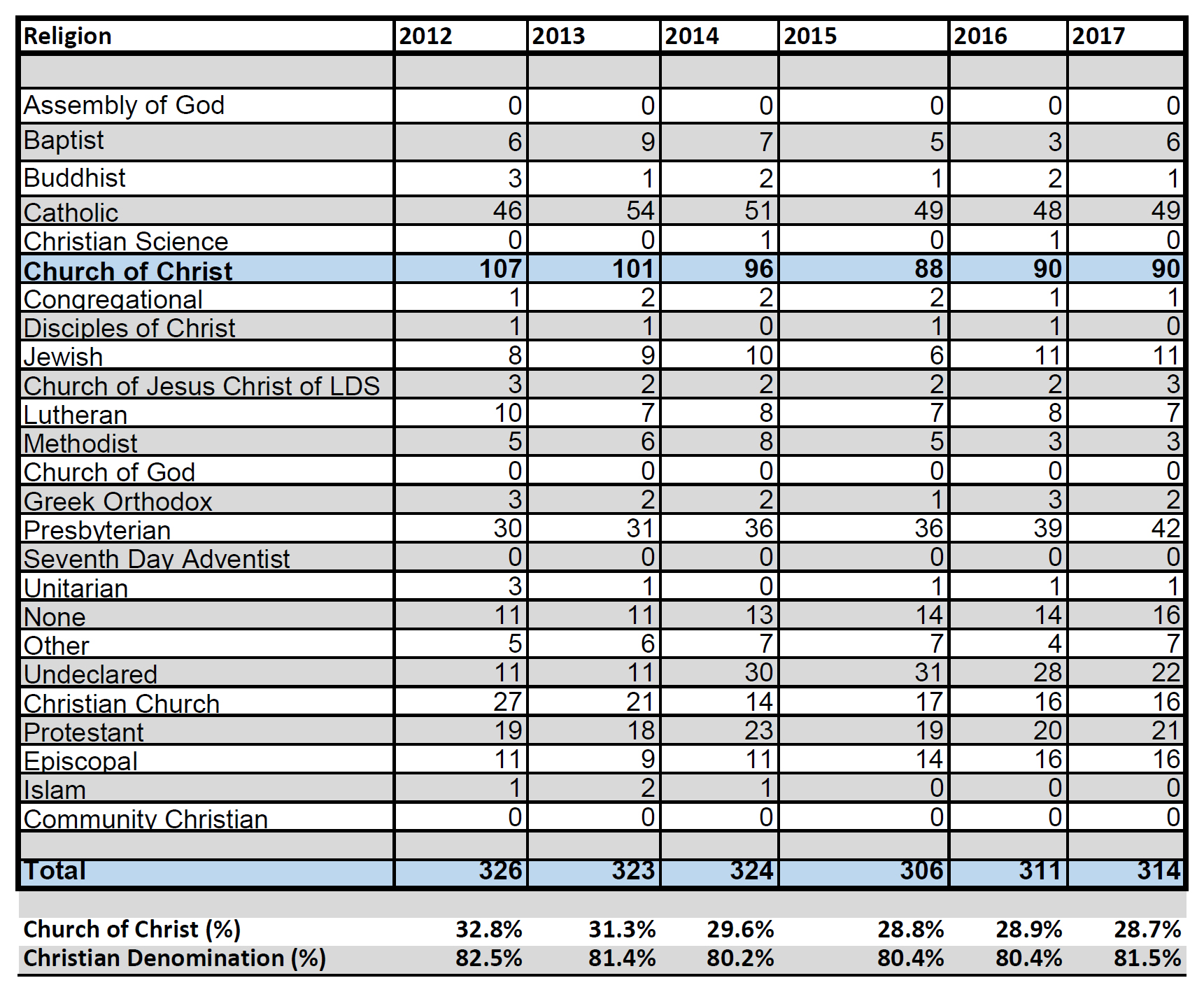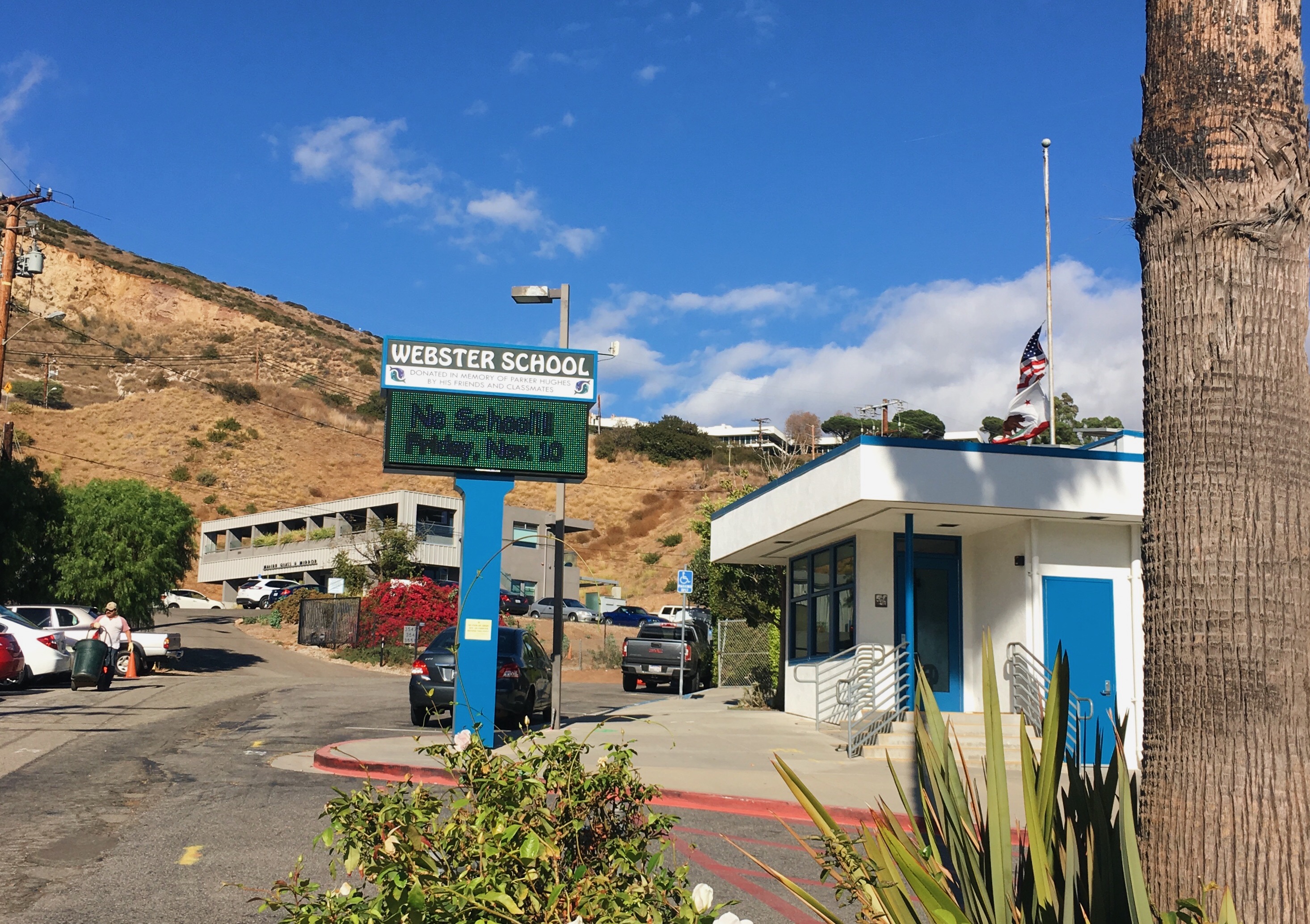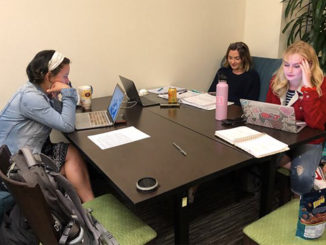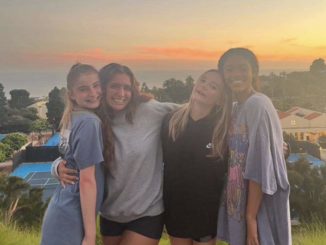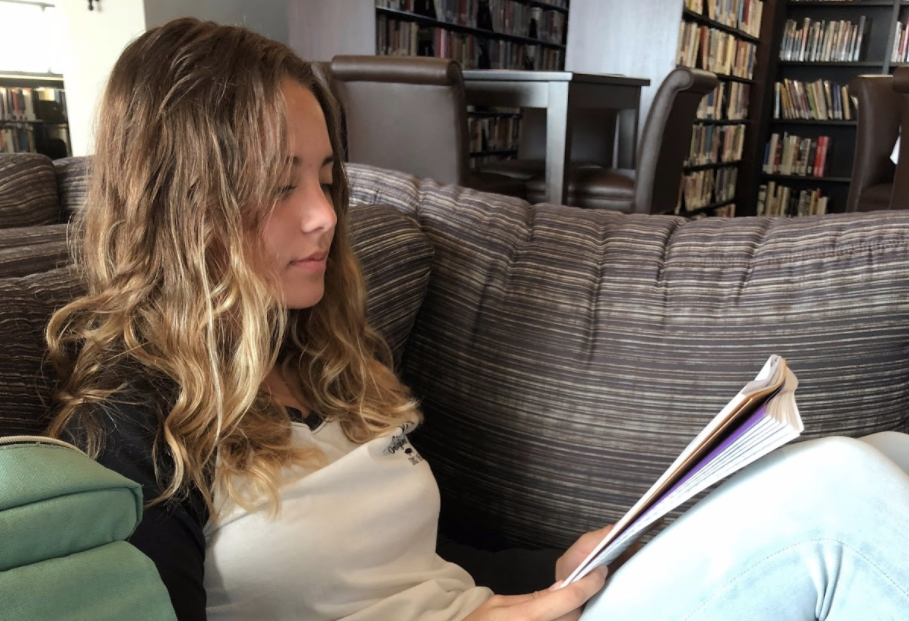
Pepperdine University has walked a tightrope between academics and faith for the last 20 years.
Pepperdine’s top administrators want the school to be the Protestant equivalent of Notre Dame, one of the leading Roman Catholic institutions in the world. Administrators lean on hiring, student recruitment and special programs to retain the Christian emphasis.
“I think there are very few schools that attempt to do what we do and that is to integrate academics and Christianity in a way that is real, foundational and says essentially that we refuse to pick one over the other,” Seaver Dean Michael Feltner said. “Pepperdine is distinctive in the fact that we haven’t tried to make that choice. We’ve agreed to live in the tension.”
Pepperdine administrators aim to recruit students and faculty who feel connected to the faith mission. The Center of Faith and Learning and Church Relations play an important part in maintaining Christian faith in the community. Convocation and religion classes help members of the Pepperdine community grow and reflect on their faith. Students and faculty both agree Pepperdine is holding the tension between academics and faith well.
A Pepp Post poll of 50 students found 60 percent of students believe Pepperdine properly balances its Christian mission with academic excellence.
The approach to student recruitment
Pepperdine’s Admissions Office employs a holistic review process that takes into account a student’s past academic performance along with other non-cognitive factors.
“We base 70 percent of the admission decision on a student’s academic profile like test scores and GPA and the other 30 percent on extracurricular involvement, letters of recommendation and application essays,” Kristy Collins, dean of Enrollment Management, said.
The Pepp Post poll found 75 percent of students think they were accepted to the school because of their academic ability.
Feltner agreed with Collins and said all the non-cognitive factors help the Admissions Office analyze how important the mission of Pepperdine is to each student.
“When we put academic achievements and a connection to our mission together we can figure out what kind of student is the ideal student for the school,” Feltner said.
Pepperdine’s Admissions Office creates campaigns for a diverse population of students.
“We aim to create campaigns that are relevant for any student who might be interested in Pepperdine,” Collins said.
Even though Pepperdine welcomes students from all faiths, administrators at the Church Relations Office focus on specifically recruiting Church of Christ students.
“Our office strengthens ties with the Churches of Christ through equipping and encouraging church leaders as well as recruiting Christian students to the university,” Program Coordinator Corey Rhoades said.
The Church Relations Office has different programs to recruit Church of Christ students.
“The Bible lectures are the largest event Pepperdine puts on.” Rhoades said. “The campus gets packed with prospective students, parents and many elderly that come to listen to big keynote speakers.”
There is also a Pepperdine a cappella group that is sent to churches around the world to recruit students.
“Won by One is an acapella group with six members that spend about eight weeks every summer touring the U.S.,visiting churches, giving performances and leading worship,” Rhoades said. “All of that is just spreading the message that Pepperdine cares about churches and wants to serve as well as bringing students from those churches here.”
The Church Relations Office has been recruiting Church of Christ students for years.
“There’s an admissions counselor who specifically works with the Church of Christ population.” Rhoades said. “So and I would say Pepperdine’s mission is not to build a community of 100 percent Church of Christ students, but we want to make sure that the ties are there.”
Students have the freedom to practice their religion on campus, making Pepperdine an attractive choice to Christian and non-Christian students alike.
“We have a Christian mission that allows you to be your whole self 24/7 365 days a year,” Feltner said.“If you’re at a secular institution where religion can’t be talked about in the workplace, you know you have to be a different person on Sunday than you are Monday through Friday. You don’t have to do that here.”

The approach to faculty recruitment
Hiring faculty is a more intricate and lengthy process than recruiting students.
“In order to be a viable candidate for a position at Pepperdine, faculty are required to have the right credentials, a research agenda and the drive to continue to grow themselves as scholars,” Provost Rick Marrs said. “We want to see that they’re going to continue to research and that they have potential for being good instructors.”
The final piece of the hiring process is to see whether candidates support Pepperdine’s mission of purpose, service and leadership.
“We want to know how they feel about our mission and what is it about the mission that appeals to them,” said Daniel Rodriguez, divisional dean of the Religion and Philosophy Division. “We want to see if they understand the mission of Pepperdine particularly as a Christian university.”
The majority of Pepperdine faculty share Christian faith, but are diverse in their religious affiliations.
“You don’t have to be a Christian to be hired here, but you have to be someone who is sympathetic to the mission,” Rodriguez said. “So this explains why over 90 percent of our faculty at Seaver are Christians of one flavor or another.”
The Center of Faith and Learning helps first-year and mid-career faculty incorporate faith and learning into their teaching.
“We try to empower faculty stories to understand what faith and learning means in their life and then to merge them together into a community to see what faith and learning means at Pepperdine,” said John Barton, director for the Center for Faith and Learning and a religion professor.
The center hosts regular book clubs to help professors come together and discuss the incorporation of faith and learning in their teaching.
“Every year we have a dozen or so book groups where we get faculty together to read a book and discuss it,” Barton said. “We try to keep discussions about faith and learning constantly in circulation in order to keeping people thinking about it.”
The center also hosts summer retreats that help faculty reflect on their own faith and learning experiences.
“We do a big retreat every summer where we take all first-year faculty to one of our international programs and spend 10 days together,” Barton said. “At the retreat, these new faculty write an essay where they share what led them to Pepperdine, how they find meaning in their life and why they chose their career path. Then they all go around and read their stories to each other and it helps us kind of get this sense of our collective story.”
Mid-career faculty use these retreats as a way to refresh what they experienced when they first got the job.
“Every three years we do a mid-career faculty retreat where we invite people who have been here 10 to 20 years and give them an opportunity to have an experience like that again and kind of refresh their thoughts,” Barton said. “We want to see what they have learned in their 10 years at Pepperdine and have them share their experiences with colleagues.”
Faith-based programs
Convocation
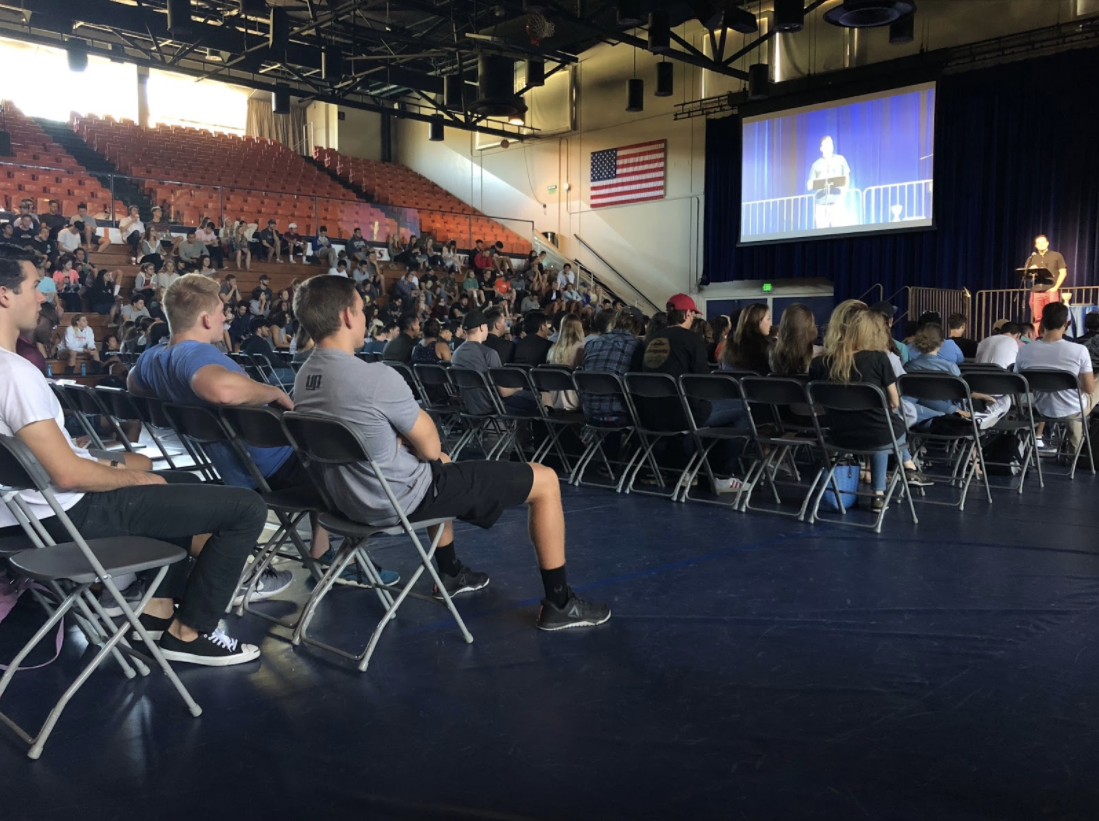
Convocation gives an opportunity for students and faculty to grow their faith, listen to engaging speakers and learn how they can use Pepperdine’s mission of service, purpose and leadership to make a difference in the world.
“There are a few different Convocation options,” Convocation Director Gus Peterson said. “There is Wednesday Chapel, Celebration Chapel, club convos, community chapel and a spiritual mentoring program.”
Many faculty believe the Convocation program is valuable to students.
“Convocation helps us to grow together, to deal with difficult topics together and to have discussions outside of that time,” said Stephanie Cupp, program coordinator for the Center of Faith and Learning.
Felter agreed that Convocation is beneficial to the students and to upholding Pepperdine’s mission.
“The ability of the community to come together and to hear a common message and common themes that are uniquely founded on our Christian heritage is important,” Feltner said.“It’s important to our identity and to communicating our identity to students.”
Undergraduate students are required to attend 14 Convocation events each semester, which has created mixed reactions from students and faculty.
“Worship should never be mandatory,” Rodriguez said. “There may be a certain lecture that’s mandatory where you hear a spiritual talk by somebody who’s really qualified, but when we ask people to now stand up and worship God, that’s taking it too far.”
Many students also aren’t pleased with the program being mandatory.
“I feel like I’m forced to attend Convocation,” Ashley Halter, junior sports administration major, said.“If it wasn’t mandatory I’d probably be more inclined to go. Most of the people sitting in the room are on their phones or on their laptops. Clearly they don’t care enough to pay attention, so why force them to be there?”
Other students think that a grade shouldn’t be attached to attendance.
“I hate Convocation,” Ella Han, junior liberal arts major, said. “I didn’t grow up religious and forcing us to go to chapel every week is just wrong. If I don’t want to show up to Convo for half the semester I have to worry about messing up my GPA. It’s not fair.”
The Pepp Post poll found that roughly half of students don’t consider themselves religious.
Marrs acknowledged that students tend to say they don’t find Convocation terribly helpful or meaningful.
“The faculty have talked about a lot of different alternatives to Convocation, like having multiple gatherings on Wednesday instead of one big gathering,” Marrs said. “Students tend to find Club Convo and the smaller gatherings much more meaningful than Wednesday service.”
The Pepp Post poll found 70 percent of Pepperdine students said they shouldn’t be required to attend Convocation.
Even though the majority of students are against mandatory Convocation, there are some that see the value in it.
“I believe Convocation is integral in upholding the mission,” Austin Welch, junior business administration major, said. “I think it’s a safe and positive space that students should take advantage of.”
Mandatory religion classes

Pepperdine’s curriculum requires three mandatory religion classes to support its Christian mission.
“In order to graduate, all undergraduate students are required to takes three religion classes: The History and Religion of Israel, The History and Religion of Early Christianity, and Christianity and Culture,” Rodriguez said.
In these three GE classes, students study biblical texts, learn methods of studying the Bible, and think deeply about how culture and religion have impacted one another.
“The point of Christian education in my mind is to do what secular schools are doing but just adding a very important factor and that is answering the question why,” Rodriguez said.
Students had mixed opinions on the mandatory classes. Some were happy with the requirement.
“I had no idea the Bible was so interesting,” Halter said. “My religion class this semester gave me a new love for my religion.”
Others weren’t as pleased with their religion classes.
“I think mandatory religion classes are a waste of time,” Han said. “I could be in a class I’m really interested in, but instead I have to sit through a boring religion class.”
In the Pepp Post poll, roughly half of students said religion classes shouldn’t be mandatory.
Students are devoting less time to faith and more time to academics. The Pep Post poll found roughly 60 percent of students spend less than two hours on religion-related activities a week.
Holding the tension between academics and Christian faith
Faculty and students alike seem to be in agreement that Pepperdine is putting up a noble effort in holding the tension between academics and faith.
“Pepperdine is forcing students to reflect on both their discipline and their life of faith and how those two fit together,” Feltner said. “By ultimately seeking God’s truth, I think we’re getting at exactly what our mission should be.”
Cupp has been at Pepperdine more than a decade and is proud of the progress that the school has made in upholding its mission.
“I don’t think the systems we have in place are perfect, but we live in an imperfect world,” Cupp said. “In the last 15 years we have been doing a much better job than we have in some past decades of fulfilling that integration.”
Raymond Carr, an assistant professor of religion, takes a different stance by questioning the need for balance.
“I would be critical of the idea that academics and the Christian mission have to be properly balanced,” Carr said. “I would argue that depending on the situation sometimes you’re placing an an overemphasis on the Christian part and then sometimes you’re putting your focus back on academic excellence.”
The Pepp Post poll found that roughly 65 percent of students said they are focused on both spiritual and academic growth, rather than one or the other.
Pepperdine allows students to broaden their understanding of the world by applying critical thinking to both their academics and their faith.
“Heaven knows the world needs love now far more than it needs anything else, so by being able to integrate a Christian faith perspective and academic excellence I think that’s how we how we best fulfill and best prepare students for the world,” Feltner said.
Rebecca Eliav completed the reporting for this story under the supervision of Dr. Christina Littlefield and Dr. Theresa de los Santos in Jour 241 in fall 2017. Dr. Littlefield oversaw the web story. Dr. Theresa de los Santos oversaw the video news package.

